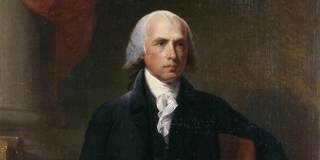Escalation comes after months of calm and amid productive ongoing talks to restore the Iranian nuclear deal.
 A US military convoy rides at the countryside of Deir Az Zor in northeastern Syria
A US military convoy rides at the countryside of Deir Az Zor in northeastern SyriaPublished On 26 Aug 2022
Three separate days of skirmishes this week between the United States’s military forces and reportedly Iranian-backed militias in Syria have put the spotlight on the US presence in the country, just as indirect negotiations to salvage the Iran nuclear deal enter what appears to be the final stage.
US President Joe Biden said on Thursday that US attacks killed four fighters in eastern Syria, adding that Washington’s action aimed at protecting its forces from attacks by Iran-backed armed groups in the region.
“I directed the August 23 strikes to protect and defend the safety of our personnel … and to deter the Islamic Republic of Iran and Iran-backed militia groups from conducting or supporting further attacks on United States personnel and facilities,” Biden said in a statement to the US Congress over his decision to take military action.
Iran has denied the groups involved are backed by Tehran, or that the targets were linked to it and has called for US forces to withdraw from Syria.
Biden said the attacks had shelled a facility used by the groups for logistics and ammunition storage and were a response to raids on the US and its allies in the region.
Three US service members also suffered minor injuries on Wednesday, when armed groups launched rocket attacks at two military bases in northeast Syria, according to US Central Command, adding that US forces killed the four suspected fighters in response.
Jean-Loup Samaan, a senior research fellow at the Middle East Institute in Singapore, said the recent US raids look like tit-for-tat exchanges rather than a considerable military escalation.
“If we follow the statements from the US government, the logic so far does not seem to be to escalate but to restore some kind of status quo between both sides,” Samaan told Al Jazeera.
“I don’t think the idea was to connect the developments in Syria to the ongoing nuclear talks, in fact, it’s probably the opposite,” the analyst said.
“It also reminds us that the deal at stake won’t solve all the issues on the table, as we saw back in 2015 the deal had no effect on other regional issues,” he added.
The escalation between the two sides might threaten the talks to salvage the nuclear agreement between important world powers, led by the US, and Iran.
Negotiations to restore the agreement have ramped up in recent months, more than four years after former US President Donald Trump unilaterally pulled out of the deal, which aims to prevent Iran from acquiring nuclear weapons in return for the lifting of sanctions on the country.
The sides have been exchanging amendments to what is called a “final text” to the deal in the scope of the talks.
US internal politics
Seyed Mohammad Marandi, a professor at the University of Tehran believes that the recent escalation in Iran stems from domestic US politics ahead of upcoming mid-term polls in the country.
“Biden wants to be seen as a strong leader in front of the American political class and people before the upcoming [mid-term] elections, and also because now we are close to a nuclear deal,” Marandi said from Tehran, adding that the forces attacked are present in the country with the approval of the Syrian government to fight the ISIL (ISIS) group (ISIS).
As well as fighting ISIL, the militias fighting in support of the Syrian government played an active role in defeating the Syrian opposition across vast swathes of the country.
Marandi added that “the illegal US attacks” seem to be calculated as the reported damage caused by them was limited, and therefore not affect the ongoing nuclear talks with Iran.
“The American troops are careful not to overly escalate the situation without large damage or cost, which also shows that the move is more about internal politics than regional issues,” Marandi said.
The 2022 US mid-term elections will be held on November 8. The candidates will compete for all 435 seats in the House of Representatives and 35 of the 100 seats in the Senate.
SOURCE: AL JAZEERA







.jpg)



